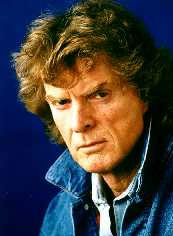Valerie’s post about “How to Speak Peace” really has me thinking.
A few months back, I was chatting with a very spiritually-oriented friend about something that was stressing me out. It was a banal, everyday kind of stress situation, and as I blathered on and on about it, I casually said, “ug, it’s totally killing me.”
My friend freaked out. She stopped me right away and said I shouldn’t use death as a metaphor. I think she even did a quick blessing over me on the spot.
In the moment, I felt a little awkward. The whole rest of the conversation, I found myself self-censoring, thinking through every sentence before I said it, not wanting to upset my friend or break the flow of our conversation again. Honestly, I even resented a little bit the thought that the words that I would choose in the natural flow of a relaxed chat with someone I like and trust could be “the wrong words.”
But now I think I get it a little more. Our words come from inside our bodies and go out into the world, and with that comes a degree of power. The Jewish precept of “lashon ha-ra,” or the evil tongue, is predicated on the idea that our speech is a gift, part of what makes us beautiful and human, so we must choose carefully how we use it, lest our words lose their potency.
When I used to teach Hebrew school, I always reacted strongly when my students said, “I hate homework.” “Hate war, hate poverty, hate cruelty,” I would say, “Be annoyed with homework. (But do it!)” In other words, save the strong words for when you need them.
Like everything else in our lives, it comes back to mindfulness. Speaking peace means being conscious of the words you choose. Not in a self-censoring way, but in the sense of noticing which emotional stores your mind draws from and trying to refocus your mind to a more peaceful word-silo.
That situation I was discussing with my friend wasn’t killing me. Thank God. It was bothering me, it was exhausting me, it was following me. But I’m lucky enough to have lived through it, lived to speak another day.

